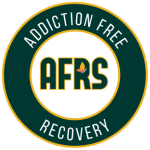The recovery aspects of Addiction Recovery are long-term and chronic. Most people care about the initial phase of treatment but do not appreciate that treatment is not a place to rest on the road to the future. Addiction treatment aftercare is essential because this period of recovery comes with sober living, healthy habits, and tools that are created for one to prevent the chances of a relapse. If proper aftercare does not exist, the risk will be high that this person will fall back into their unhealthy behaviors. That is the reason permanent recovery from addiction requires addiction treatment aftercare.
In this text, we’ll explore the significance of post-treatment support, what it entails, and how it plays a pivotal role in relapse prevention. We’ll also look at the different types of aftercare programs available and their benefits, ensuring that individuals have the tools and support they need to maintain their recovery.
What Is Aftercare in Addiction Treatment?
Aftercare in addiction recovery and aid for those individuals after their stay in the intensive treatment program bridges the gap between intensive treatment and going back to a mainstream lifestyle. This is the safety net that ensures people fully maneuver through the challenges of sobriety and equips them with the skills and mindset for survival into reality.
Aftercare can take many possible forms, but the course will be determined by individual needs, desires, and the type of addiction treatment program that is completed. The basic concept of addiction aftercare is making sure people do not face the rigors or temptations of life alone once they have completed their ongoing support for addiction. The most difficult stage of recovery is when the treatment finishes and the individual needs to start living sober. Aftercare programs provide everything an addict requires in the recovery stage.
Several important addiction aftercare treatments can include:
- Support Groups. Just like the 12-step program which in most cases is a model for Alcoholics Anonymous or Narcotics Anonymous, individuals may share experiences with other people who have shared similar experiences.
- Individual Therapy and Group Counseling. This allows individuals to process their emotions, gain insight into their behavior, and acquire coping skills.
- Sober Living Environment. This is a safe place to live which will support a structured system so that a person may get back into society with caution.
- Education and Skills-Building Programs. These can make them more employable, improve life skills, and give them a general feeling of self-worth.
All this acts as an integrated support system that can keep someone on the right track toward recovery.
The Role of Aftercare in Preventing Relapse
Relapse is one of the concerns at the center of recovery, and aftercare in addiction recovery is of utmost importance. While formal treatment programs teach individuals how to manage their addiction in a controlled environment, real-world situations are challenges that trigger cravings and emotional distress. Therefore, the need to control these factors drives relapse prevention.
Post-treatment support is intended to arm the individual with strategies and coping mechanisms to prevent relapse. Without these, one may not be able to deal with stressors, triggers, or environments that can challenge them toward temptation.
Among the strategies used in addiction recovery programs, a number of these are for relapse prevention:
- Cognitive-Behavioral Therapy (CBT). A method that helps clients think about maladaptive thoughts that contribute to harmful behaviors and change them.
- Mindfulness and Stress Management. This teaches a person how to maintain non-stressful conditions, stay grounded in the moment, and avoid emotional triggers.
- Support Networks. Getting support from a network offers accountability and encouragement and provides a haven for people to share their struggles and celebrate successes.
With all this in place, an individual in recovery is better equipped to cope with the lures and challenges outside treatment. Ongoing support for addiction over time means a lifeline is available to help individuals when they are bound to face tougher times, and therefore, the chances of a relapse are drastically minimized.
Types of Aftercare Programs for Addiction Recovery
Addiction treatment aftercare does not take one standard form. Choices depend on individual needs and preferences and the nature of the addiction. Among the more common types of aftercare are the following:
| Addiction Treatment Aftercare | Description |
Support Groups | Support groups are also a core part of post-treatment support. In these groups, an individual can share his/her feelings, experiences, and struggles with others who can relate to them. Support groups are famous not only in the name of AA but also NA, SMART Recovery, etc. These groups offer individuals an environment that gives them a feeling of belonging and reduces loneliness in recovery. |
Sober Living Homes | Sober living homes are meant to provide a safe and structured environment in which someone may be able to concentrate on recovery. Usually, sober homes enforce rules or even establish laws governing sobriety. Such rules can include occasional testing, curfews at night, group meeting participation, etc. Transitioning from a safe and structured environment to independent living while staying sober requires sobriety houses. |
Outpatient Therapy and Counseling | Therapy continues to be an integral part of recovery even after formal treatment. Many individuals follow up with regular visits to outpatient therapy or group counseling for continued work with emotional and mental health. Potential therapy may include individual counseling, family therapy, or group therapy on certain issues related to addiction and recovery. |
Relapse Prevention Workshop | Some programs are specially tailored with specific workshops and courses for relapse prevention. These workshops teach participants how to identify triggers, manage cravings, and stay sober in situations that are prone to high risks. The whole idea behind the workshop is to make the individual powerful enough to handle real-life situations without reverting to substance usage. |
Benefits of Aftercare in Long-Term Sobriety
The benefits of aftercare in addiction recovery far outnumber the prevention of relapse. Aftercare aids in helping individuals post-treatment set up a meaningful life and offers some long-term benefits, without which a person cannot sustain sobriety.
Maintaining Motivation and Accountability
It is quite easy for an individual to lose focus on their goals after the treatment, but addiction recovery programs keep them motivated and responsible. Be it support groups, therapy, or a sober living environment, aftercare allows an individual to stay focused on his long-term recovery goals while ensuring adequate support is available to him in the journey toward a successful recovery.

Building a Supportive Community
As lonely and grueling as addiction recovery can be, aftercare programs do help individuals expand those connections with other people who have shared similar experiences. Interactions result in support, encouragement, and even a feeling of belonging, very important traits toward long-term recovery.
Improved Mental Health and Emotional Well-being
Recovery is not just getting sober but also healing the mind and emotional health. Ongoing support for addiction addresses underlying mental health conditions, such as anxiety and depression, and often trauma that co-occurs with addiction. Again, these people become more stable in dealing with life’s stresses without resorting to substances.
Building Life Skills and Self-Esteem
Recovery individuals must restructure their lives, careers, and relationships to fulfill their personal goals. Life skills training is the most common feature of aftercare programs. It builds an individual’s self-esteem, social adjustment, and independence.
How to Choose the Right Aftercare Program?
Choosing the right addiction treatment aftercare is a serious matter and something that should not be taken lightly. The following are a few things to remember while in this position:
- Individual Needs. Discuss what you need and what will work well for you. Do you need a more structured environment, like sober living, or will you do better with outpatient therapy and support groups?
- Compatibility With Treatment. Have you completed a treatment program? Does the aftercare program reflect your treatment goals? Does it include continued therapy or relapse prevention techniques that worked during treatment?
- Professional Support. The membership should also be directed towards professional support, where the member gets access to licensed professionals for counseling, therapy, and addiction consultants.
- Flexibility. Some individuals may require very flexible packages that promote a balance between recovery and work or family obligations. Find programs that offer this flexibility while still providing the necessary support.
Common Challenges in Aftercare and How to Overcome Them
A person coming into sober living may also face difficulties with post-treatment support. Some setbacks include:
| Challenges in Aftercare | How to Overcome Them |
Sense of Isolation | Aftercare may make an individual feel connected to the community and society at large. However, in the early recovery periods, it is expected that they will feel isolated. To overcome such feelings, they should engage in support groups, therapy, and sober activities. |
| Financial Obstacles | Some services are costly, but scholarships, sliding-scale fees, or insurance can often be used to help pay for treatment. There is research to find many resources for financial assistance. |
| High-Risk Cues and Slip-Ups | No matter how carefully set up, people are sometimes tempted to return to old ways. Therapy, support groups, and coping skills make an individual’s counterproductive efforts against high-risk cues worthwhile. |
Embracing Aftercare for Lasting Recovery
Aftercare in addiction recovery is essential for long-term sobriety. It provides the necessary tools, resources, and emotional support to help individuals stay on track after formal treatment. By investing in addiction treatment aftercare, individuals can build a strong foundation for lasting recovery, equipped with the knowledge and skills to prevent relapse and create a fulfilling life in sobriety.
Remember, ongoing support for addiction doesn’t stop after treatment, it’s a lifelong commitment to self-care, growth, and maintaining a healthy, sober lifestyle. If you or a loved one is nearing the end of addiction treatment, be sure to explore the various aftercare options available to you. The path to lasting recovery continues long after treatment ends.

FAQs
- What is the difference between addiction treatment and aftercare?
Addiction treatment focuses on the intensive therapy and interventions needed to address and manage addiction, often in a controlled environment like a rehab facility. Addiction treatment aftercare, on the other hand, involves the ongoing support and resources provided after the treatment ends to help individuals maintain their sobriety, manage triggers, and avoid relapse. Aftercare can include counseling, support groups, sober living environments, and other forms of support designed to help individuals transition back to daily life.
- How long does aftercare in addiction recovery last?
The duration of post-treatment support can vary depending on the individual’s needs, the severity of their addiction, and the type of aftercare program they choose. For some, aftercare may last for a few months, while for others, it could be a year or more. It’s important to continue with aftercare as long as necessary to maintain sobriety and ensure long-term success in recovery.
- Can aftercare help prevent relapse?
Yes! Relapse prevention is a core focus of most addiction recovery programs. Through support groups, therapy, coping strategies, and building a sober network, aftercare in addiction recovery helps individuals learn how to handle stress, triggers, and temptations that might lead to relapse. By staying connected with supportive environments and having the right tools in place, the likelihood of relapse is significantly reduced.
- Do I need to participate in aftercare if I feel fine after completing my addiction treatment program?
Even if you feel fine after completing an addiction treatment program, participating in aftercare is still essential. Recovery is a lifelong process, and maintaining sobriety requires ongoing support. Post-treatment support offers resources to help individuals deal with life’s challenges, prevent relapse, and ensure continued progress in recovery. Transitioning to everyday life can be difficult, and aftercare ensures you are not alone.
- How do I choose the right aftercare program for my needs?
When choosing the right addiction treatment aftercare program, consider your specific recovery goals, challenges, and preferences. A sober living home may be the best fit if you need a more structured environment. If you prefer individual support, therapy or outpatient counseling might be more appropriate. Additionally, consider factors like cost, professional guidance, and the availability of support groups. Speak with a recovery specialist to help determine the best fit for your ongoing journey in sobriety.


























